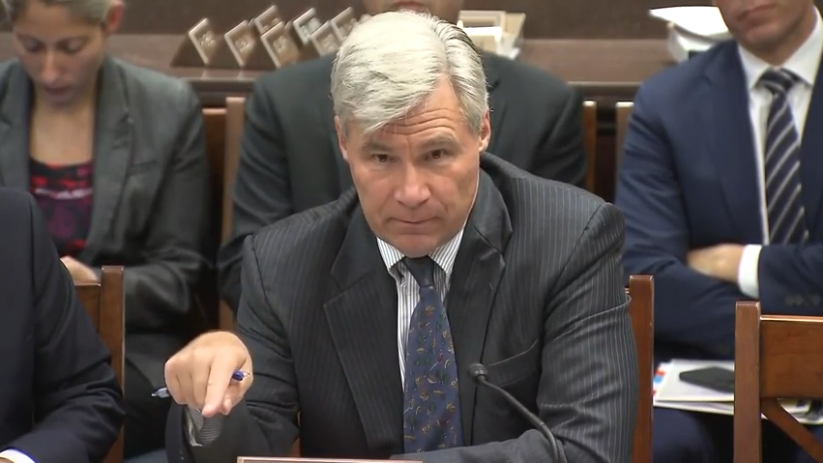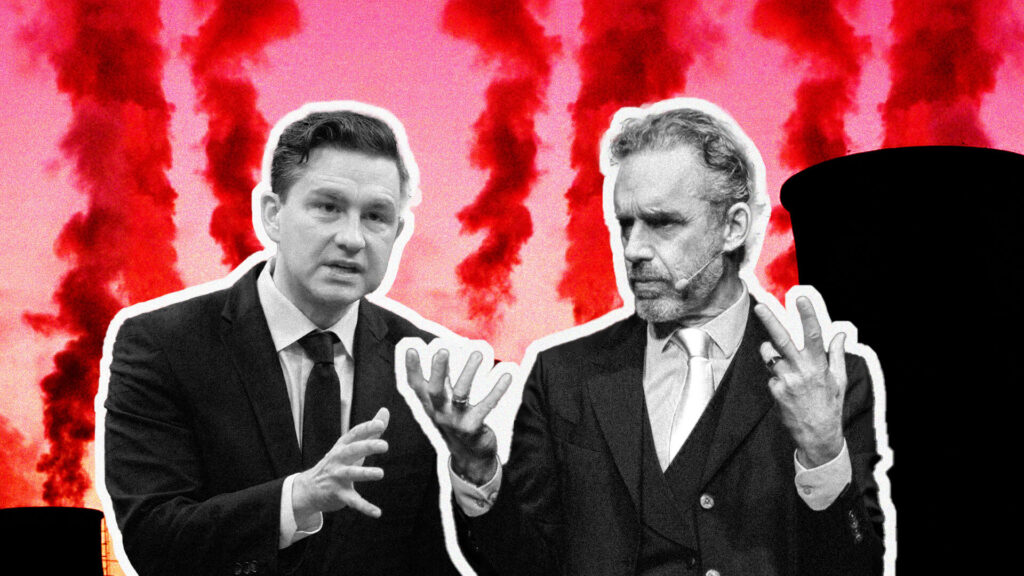Today Senator Sheldon Whitehouse (D-RI) led a hearing of Senate Democrats’ Special Committee on the Climate Crisis, which examined “Dark Money and Barriers to Climate Action.” The testimony of the expert panel and the questions and observations from senators reinforced the overwhelming influence of money — and specifically untraceable donations known as “dark money” — working against action on climate change.
Sen. Whitehouse called out the considerable investment by the fossil fuel industry and dark money interests in the Republican Party, which has gained a reputation as the party of climate science denial.
“Much of it was used to impose climate denial orthodoxy on the Republican party,” said Whitehouse. “And why not spend a few billion dollars? Buying or renting the Republican Party or seizing it in a hostile takeover … was a total bargain.”
Sen. Brian Schatz (D-HI) noted that funding from powerful special interests has mired congressional action on other issues, such as gun control. He pointed to strong public support for reducing gun violence but a lack of response by Congress.
“We’ve already won the battle for public opinion” on guns, said Schatz, who went on to draw a comparison with climate change because a majority of Americans want politicians to take “aggressive” action, but elected officials continue to fall far short.
Sen. Schatz asked Harvard researcher Naomi Oreskes, a historian of science and expert on climate science denial, to comment on the role of fossil fuel industry funding in fostering this disconnect between public opinion and Congressional action, calling it “structural control of Congress.”
“I think that we make a mistake,” said Schatz of some members of Congress, “to misunderstand their willingness to incur political risk on the ‘I had a bad day in the newspaper’ side when their true fear is ‘I had a bad day on the Super PAC side.’ And that’s what this is all about.”
“Clearly this is the case,” Oreskes affirmed, “We are seeing the ways in which members of Congress are controlled by the fossil fuel industry.”
The hearing featured a number of insights from the witnesses, but perhaps the most important points came from Sen. Whitehouse and Sen. Schatz: that the fossil fuel industry has “structural control” of Congress, and that is why the U.S. has failed to address the climate crisis.
WATCH LIVE: I’m joining @SenateDemsClimate to discuss how big corporations are using dark, secret money to block climate action. We’re joined by scientists and scholars who know that we need to #ActOnClimate https://t.co/uZHzhXhwIf
— Tom Udall (@SenatorTomUdall) October 29, 2019
Testimony on Dark Money Influence
Justin Farrell, Associate Professor of Sociology at Yale University, testified about his research into the influence of dark money in funding climate science denial efforts. His comments will be familiar to readers of DeSmog. Farrell discussed fossil fuel funding of climate science-denying think tanks, fake grassroots groups, and fringe scientists, which create a disorienting web of disinformation for the American public.
“These financed efforts created the appearance of scientific credibility,” said Farrell, “so when the average American citizen turned on cable news, listened to talk radio, or read the morning newspaper, they could not tell the difference between fossil fuel propaganda and trusted science.”
“Not only will better transparency improve our research, but it may also help to thwart large scale manipulation campaigns before they begin, or after they have already taken root.” – @J_Farrell of @Yale on the need for #ScienceNotSilence https://t.co/mAHHWOKsyD
— Union of Concerned Scientists (@UCSUSA) October 29, 2019
Senator Jeff Merkley (D-OR) echoed Farrell’s point, recalling how some constituents once said to him, “Here is the problem. How do we know what to believe?”
In his opening comments, Farrell highlighted how the rise of untraceable dark money has made efforts to expose climate science denial propaganda more difficult. “Specifically, the rise of untraceable donor-directed philanthropy — such as Donors Trust and Donors Capital Fund — has made it very difficult for researchers to continue their work,” he said.
Multiple experts during the hearing reiterated that exposing the funders of misinformation campaigns could “inoculate” the public against the impacts of their efforts. That is why dark money — which is so hard to expose — is so effective.
Bottom Line: Get Money Out of Politics
During the hearing, Oreskes explained that when she asked climate scientists about the best way to address inaction on the climate crisis, they often told her, “We need campaign finance reform.”
Oreskes agreed but also stressed the need to remove dark money, in particular, from politics. “We need both,” she said. “Working on campaign finance and exposing the dark money.”
Sen. Whitehouse traced the current uphill battle to the pivotal 2010 Supreme Court decision, which opened the door to limitless election spending by corporations on matters like climate change, and led to the rise of Super PACs (political action committees).
“There is sort of a cascade that has happened,” said Whitehouse. “A cascade into darkness that happened with the Citizens United decision that opened unlimited special interest money.”
He then went on to say that even if the public knows how much dark money is being spent in politics and can trace the source of the money, one major challenge remains:
“The hardest part is to try to figure out about the conversations that took place — powered by the unlimited dark money capability that these special interests have. The hardest thing to find around here is the small room where the lobbyists and the candidate met and the lobbyists said, ‘We are coming after you, you are toast, if you don’t do what we say.’ And the candidate realizing that with millions, billions of potential dark money spending to drop, that is a very real threat … Ultimately, the threats that Citizens United enabled are the darkest part of this.”
In other words: Until the U.S. political system changes and limits the amount of money, and its corresponding power, in politics, the deck will remain stacked in favor of the fossil fuel industry when it comes to Congressional action on climate.
Main image: Senator Sheldon Whitehouse. Credit: Screen shot from Dark Money and Barriers to Climate Action hearing testimony
Subscribe to our newsletter
Stay up to date with DeSmog news and alerts







